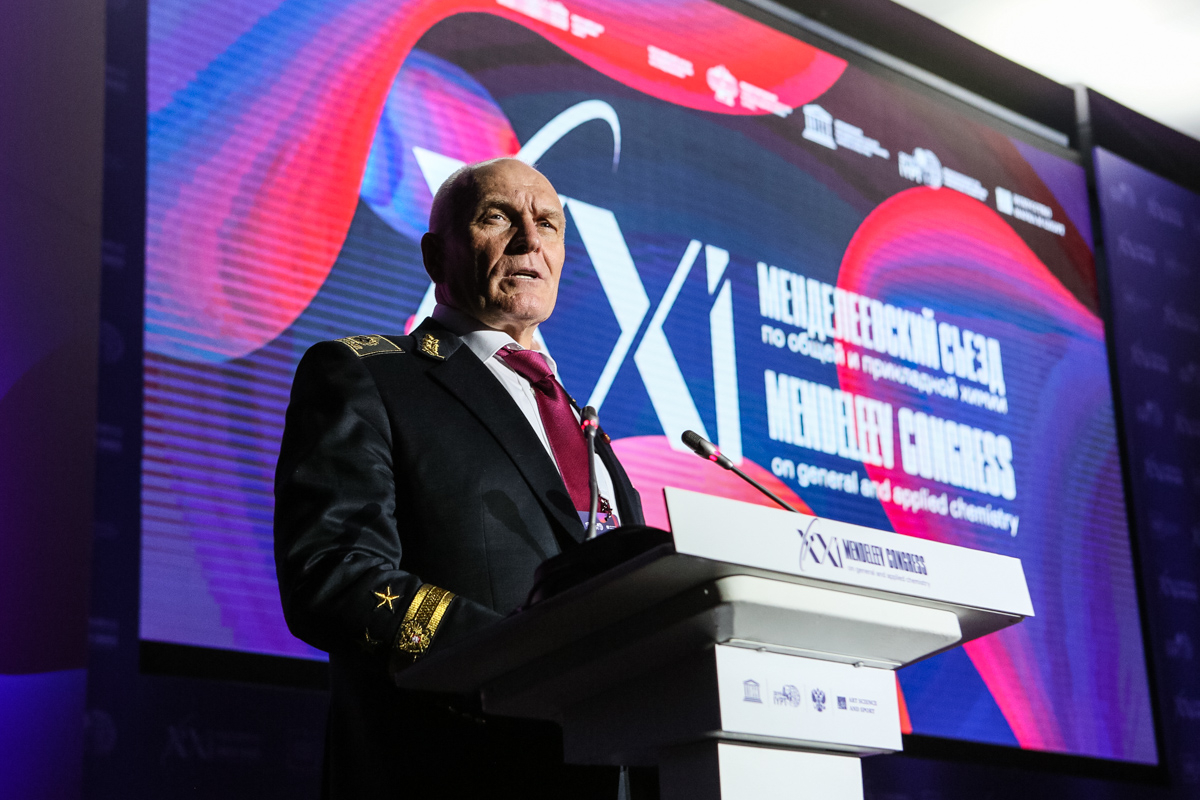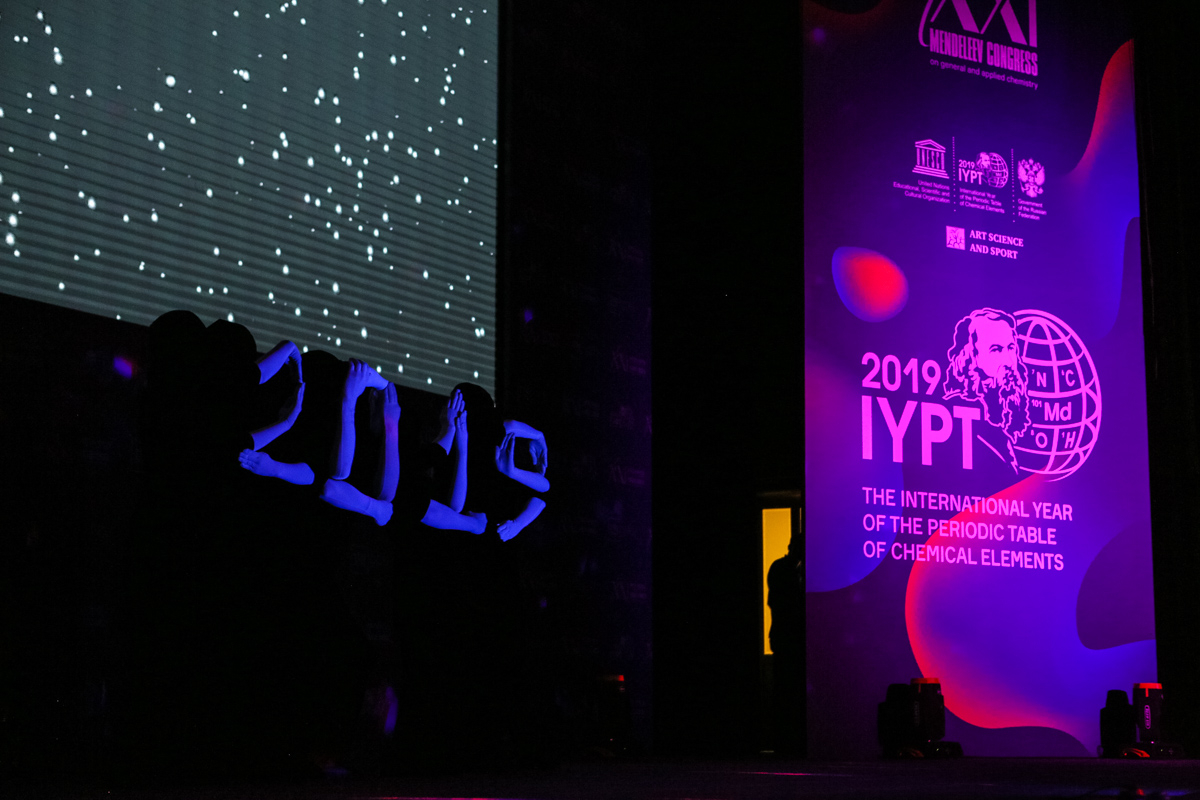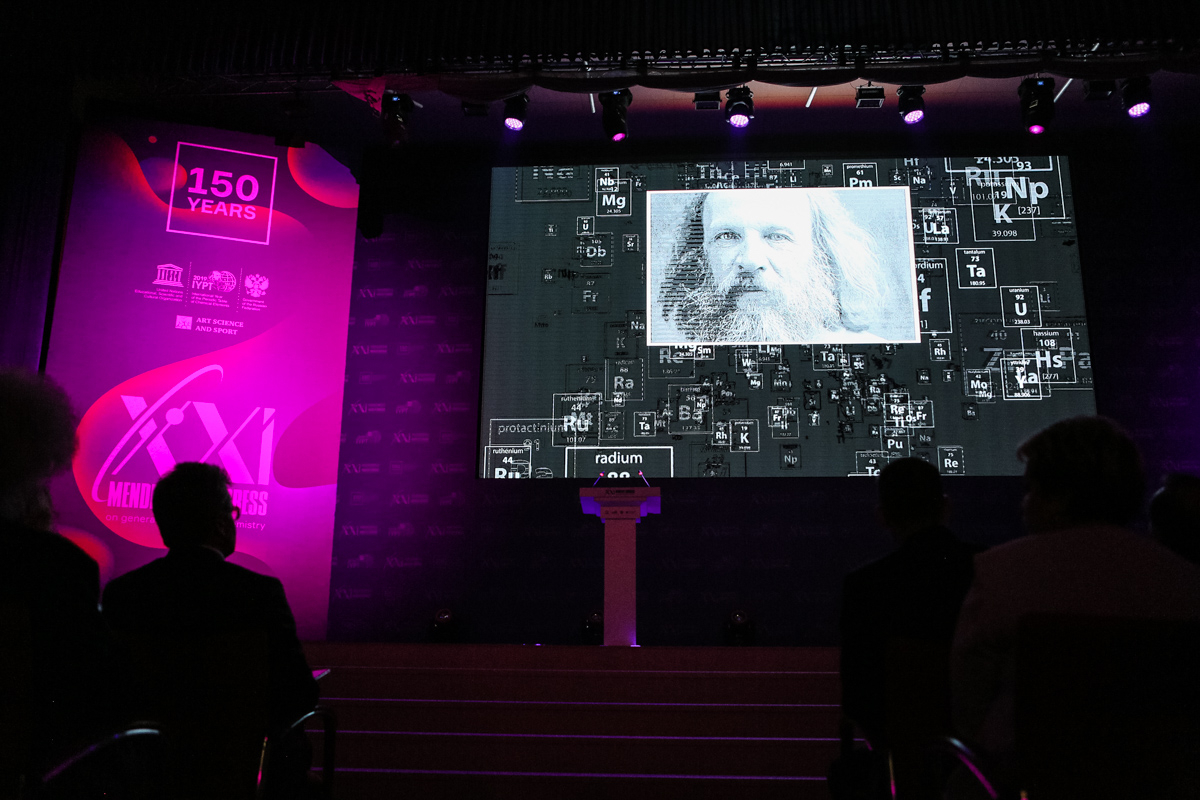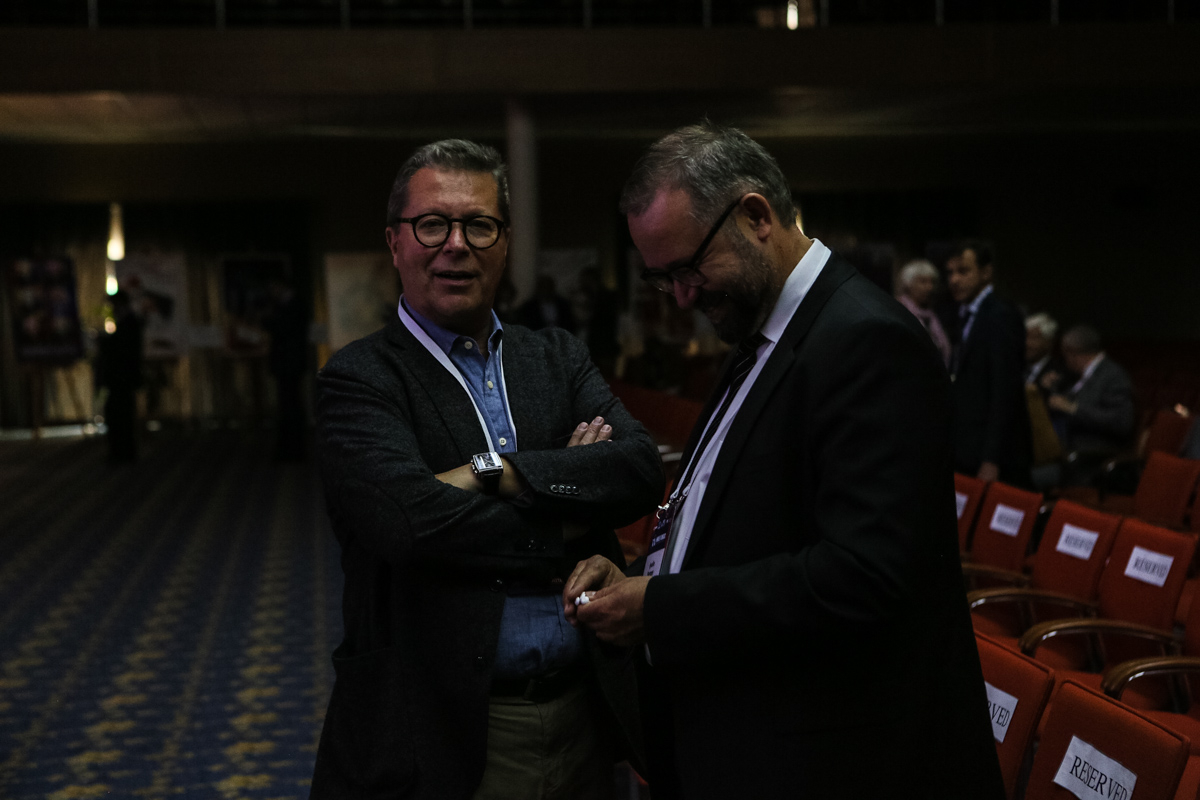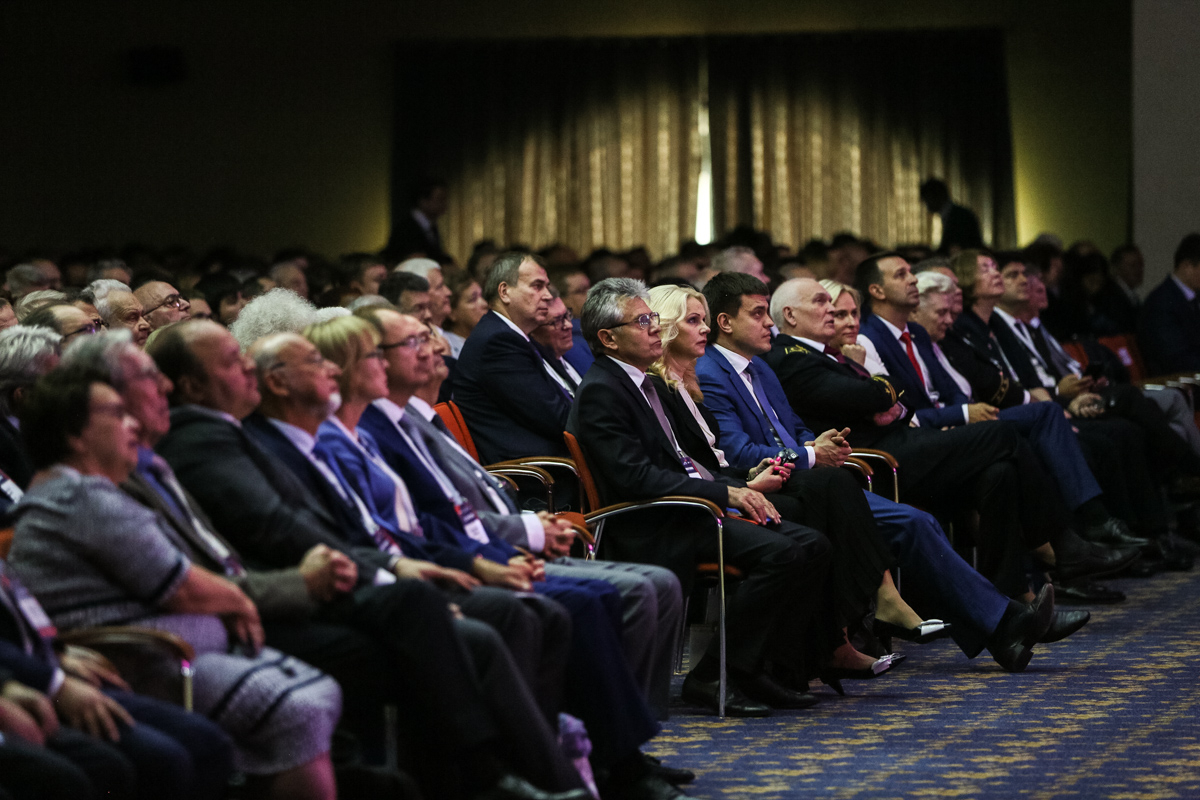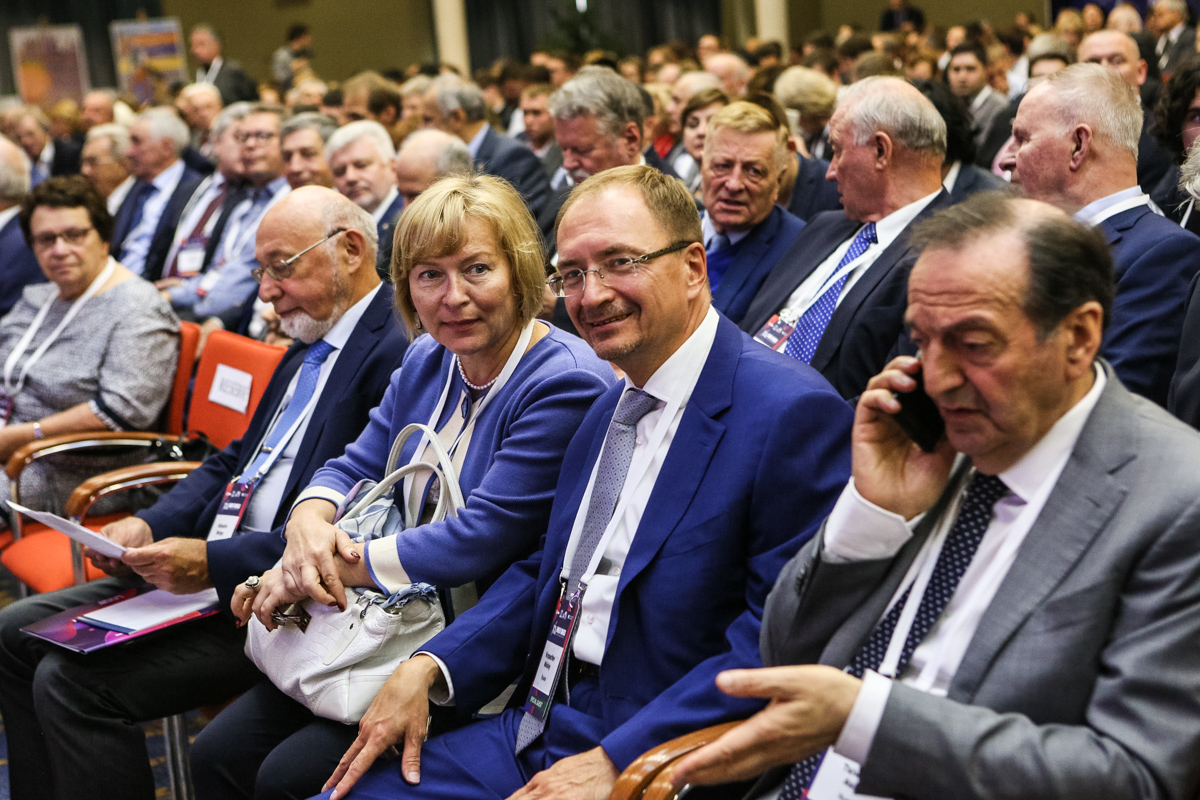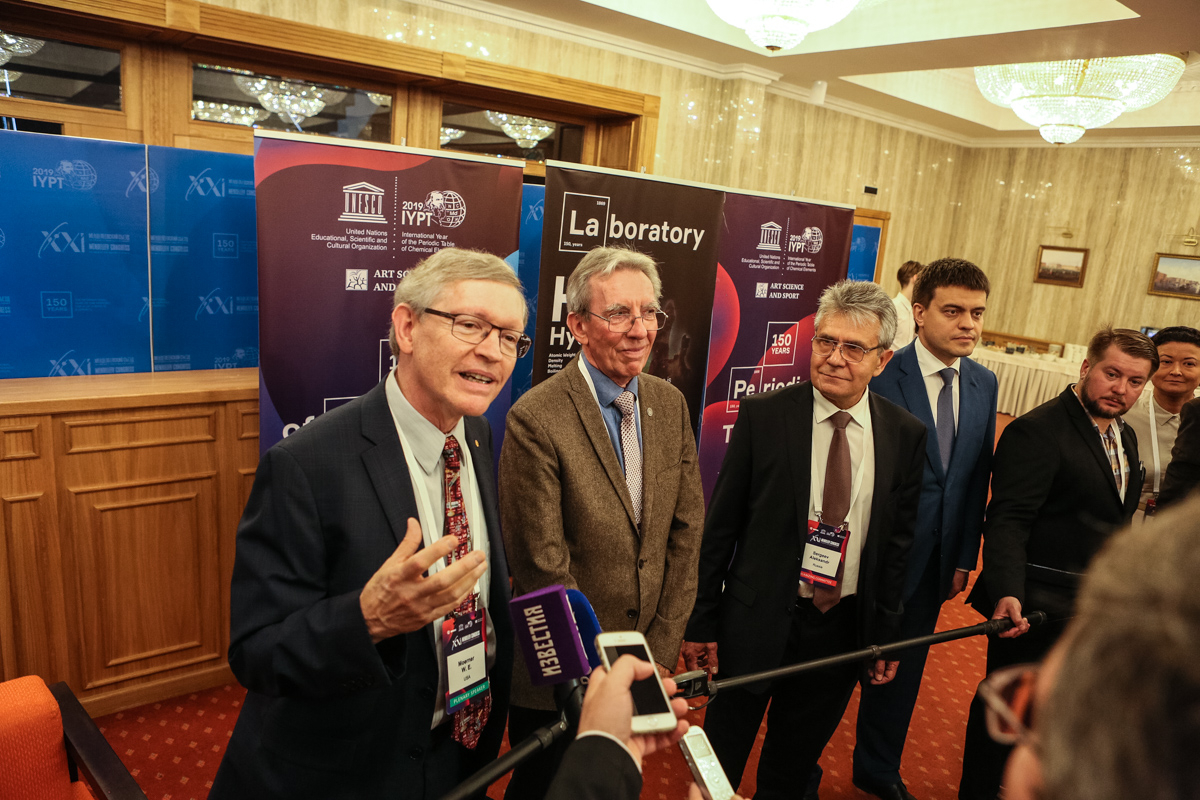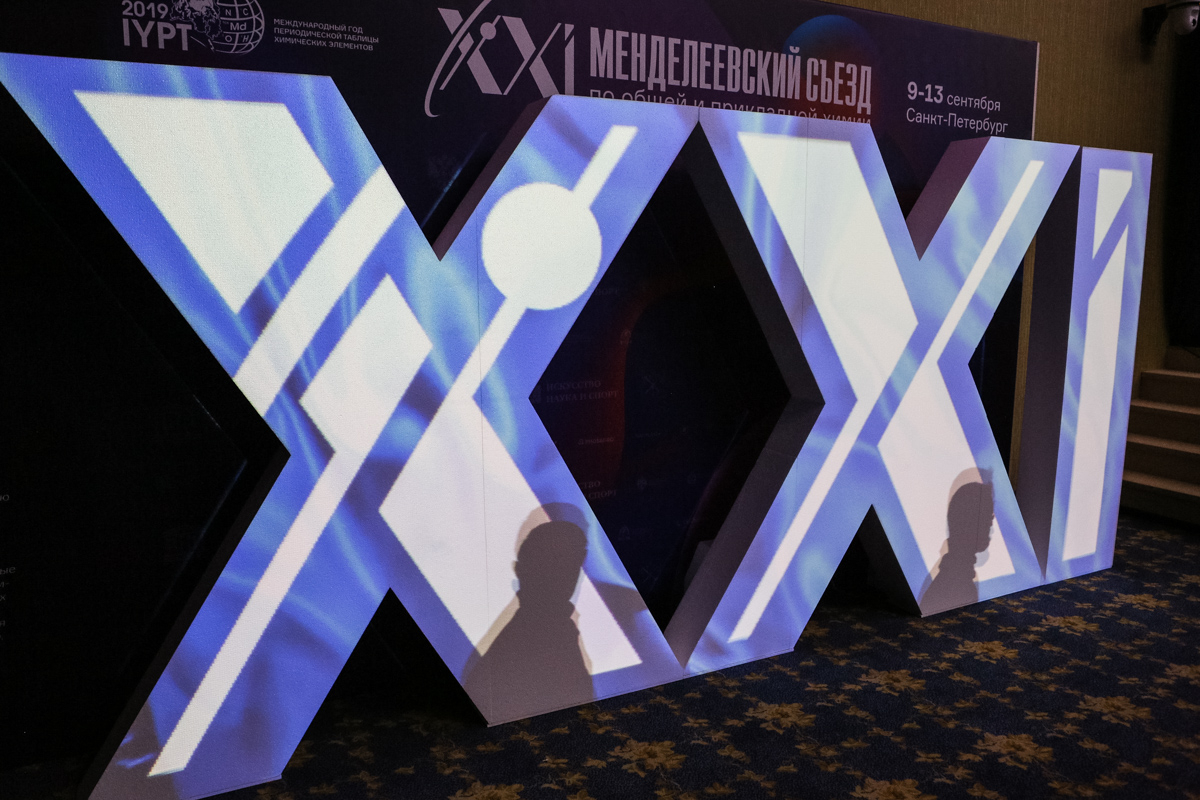Leading chemists discussed ways to solve global challenges at the Mendeleev Congress
The 21st Mendeleev Congress on General and Applied Chemistry has taken place in St Petersburg. Its participants included more than 3,000 scientists, with Nobel Prize winners and presidents of chemical societies among them.
Opening the 21st Mendeleev Congress, Alexander Sergeev, President of the Russian Academy of Sciences, read out a telegram sent to the participants of the congress by Russian President Vladimir Putin. In his greeting, he noted that the discovery of one of the most important basic laws of nature – the Periodic Law – had a revolutionary impact on the development of all of the natural sciences. It made it possible for humanity to take a sure step forward to get to know the universe. ‘I am convinced that your respected congress, which brought together well-known scientists, representatives of leading research schools, and major international organisations, will be the key event of this year,’ Vladimir Putin underlined in his telegram. According to the Russian President, the congress is an excellent platform for discussing the cutting-edge scientific achievements related to the discovery of new chemical elements. It also determines the main directions of development of research projects of advanced technologies and industry for solving priority tasks and the global challenges of the future.
The key topics discussed at the 21st Mendeleev Congress were: the development of new pharmaceuticals and diagnostic methods; alternative energy sources; modern metallurgy and petroleum chemistry; the use of radioactive elements in medicine; and the chemistry of the universe.
On behalf of the Russian government, the participants in the global scientific event were greeted by Dmitry Medvedev, Chairman of the Government of the Russian Federation and Chairman of the Organising Committee for the International Year of the Periodic Table of Chemical Elements. He emphasised that the congress has borne the name of the great Russian scientist for more than 110 years. He also stressed that many scientific events of the present and past are, one way or another, a continuation of his historical discovery. Certain areas of fundamental science and industry arose largely due to the ideas of Dmitri Mendeleev, said the Prime Minister of the Russian Federation.
As part of the Mendeleev Congress, Dmitry Medvedev met with leading scientists and representatives of international scientific organisations. Among them were William Moerner, the winner of the 2014 Nobel Prize in Chemistry, and Jean-Pierre Sauvage, the winner of the 2016 Nobel Prize in Chemistry. During a roundtable discussion they talked about the significance of the discovery of the Periodic Law and the possibilities that it opens up for future research projects. ‘For Russia, the support of long-term research and the support of talented scientists is part of our large national project, our state priority. We are trying to do everything so that the traditions of the great scientists of the past years are continued. The key priority for us is to discover talents that can change our world for the better. It is no coincidence that more than half of the participants in this prestigious international forum are young people under 35. This is the guarantee that we will see new discoveries,’ Dmitry Medvedev said.
For Russia, the support of long-term research and the support of talented scientists is part of our large national project, our state priority.
Dmitry Medvedev, Chairman of the Government of the Russian Federation
The forum participants were also addressed by Alexander Beglov, Acting Governor of St Petersburg, and Zhou Qifeng, President of the International Union of Pure and Applied Chemistry (IUPAC).
The Mendeleev Congress is held under the auspices of the International Union of Pure and Applied Chemistry (IUPAC). Among its organisers are: the Russian Academy of Sciences; the Mendeleev Russian Chemical Society; the Ministry of Science and Higher Education of the Russian Federation; the Government of St Petersburg; St Petersburg University; and the Russian Foundation for Basic Research. The scientific programme of the congress consists of ten sections, five English-language symposia and four roundtable discussions. St Petersburg University will become the venue for the satellite youth conference ‘Mendeleev-2019’, which will also include the ‘New Chemist’ roundtable. Additionally, during the Mendeleev Congress, the University hosted the grand opening of the historic site of the European Physical Society.


